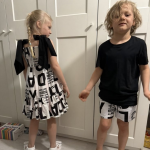How to Recognize Autism?
Autism Spectrum Disorders (ASD) often go unnoticed, especially at an early age. The symptoms can sometimes only be identified through indirect signs. For example, autistic children rarely or only in exceptional cases display social behavior, communication skills, or emotional understanding. Typically, they try to communicate with their parents only through monologues, often only to explain what they need. They lack empathy and rarely respond to expressions of affection or invitations to interact from parents or other children. They may also not enjoy playing with peers.
Often, only specialists are able to diagnose the disorder and determine the child’s unique needs, as each case of autism is different. The situation is complicated by the wide range of symptoms, which equally negatively affect the ability to communicate, maintain relationships with parents and peers, learn, and play.
- Social Behavior
For children with special needs, maintaining social interactions and adhering to common behavior rules can be challenging. Symptoms indicating autism include:
- Inappropriate body language and facial expressions that do not match their emotions
- Lack of interest in what is happening around them and an inability to point to what they want (toys, food, etc.)
- Reluctance to interact with others, especially if they can spend time alone. Inability to participate in social interactions or make friends
- Misunderstanding or ignoring non-verbal cues
- Resistance to touch and hugs, negative reactions to them, and a desire to avoid physical contact
- Communication Difficulties
Problems with communication skills are easier to identify. These include:
- Delayed speech development or the absence of simple words by the age of 2 or older
- Monotonous intonations
- Repetition of words and phrases
- Inability or unwillingness to initiate a conversation
- Inability to understand simple statements
- Limited or Repetitive Behavior
This is also very characteristic of autism. Symptoms of behavioral disturbances in this area include:
- Repetitive movements such as walking in circles, leaning to the side, clapping hands, etc.
- Excessive attachment to certain objects (doll, car…). Focused attention only on certain parts of toys (car tires, doll’s face). Autistic children are also prone to repeatedly arranging toys and objects in an order only they understand, reacting poorly even to small changes in their routine, and may present unusual posture and walking.
- Other Signs of Autism
In addition to social, communicative, and behavioral symptoms, children with Autism Spectrum Disorders may also exhibit the following disturbances:
- Sensory issues: Many have an overly acute response to sensory signals (sounds, light, temperature, pain). They can be distracted by even the quietest sounds, sudden loud noises (e.g., a ringing phone or a passing car honking). On the other hand, autistics may have a weak response to these stimuli or even ignore them completely.
- Emotional complications: Autistics almost never show their emotions or are completely indifferent. At the same time, they may scream, cry, or laugh without apparent reason, and in cases of aggressive behavior, they may harm themselves. They do not realize the dangers they face, such as jumping from heights or moving vehicles.
Early intervention with medication, therapy, and diet can eliminate or minimize these autism symptoms, but usually only if they are noticed at an early stage. However, many parents are unable to notice such signs and misinterpret the child’s unusual behavior, often turning to specialists too late when corrective measures are ineffective or unsuccessful. But even in these cases, cellular therapy can successfully address autism.
Cellular Therapy as a Treatment for Autism
Cellular therapy stands out from other methods because it uses the body’s own regenerative abilities, meaning the treatment occurs naturally. After transplanting the patient’s stem cells, which are free from rejection, they display their unique quality—transforming into specialized cells that replace those damaged by genetic or other causes with healthy counterparts. This leads to the normalization of brain and nervous system function, improving behavior and reducing or even eliminating other symptoms. The long-term effects are often lifelong, which increases the effectiveness of additional corrective methods.
Effectiveness of Cellular Therapy
Cellular therapy significantly outperforms all other traditional approaches used to fight autism and its symptoms. Initially considered an experimental treatment, it has gained widespread recognition and may become the primary technology for treating Autism Spectrum Disorders in the future.
This therapy is used in the leading clinics worldwide, including the Mardaleishvili Medical Center, where highly qualified doctors with vast successful experience utilize state-of-the-art equipment. The services offered by the center are more affordable than those of medical facilities in other countries with advanced healthcare systems. Additionally, patients can receive assistance with travel planning and accommodation during the rehabilitation period, which is relatively short.
Cellular Therapy – The Path to a Life Without Autism!
Autism Treatment Center Videos
Autism treatment with own stem cells
Cord blood association congress
International Quality Crown
Autism Treatment Reviews
Autism treatment with own stem cells
The story of Alessandro (6 years old)
Autism Patient Testimonial - Stem Cell Treatment
Clients Testimonials
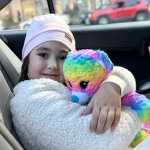
Lidiya — Elina’s mother Read More
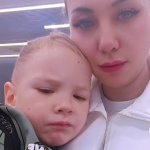
Anna – Sasha’s mother Read More

Amirkhon’s father — Tokhir Read More
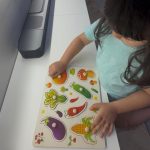
Dilana’s mother Read More
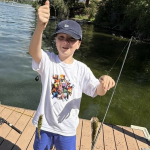
Irina and Stefan – Ilya’s parents Read More
